Let’s not beat around the bush and get straight to it. There are ways in which you can earn more money in your job, and we are here to tell you how.
Don’t worry, we won’t bore you with those tedious little details to why you should. But, what we will say is that if you would like to earn a higher income, enhance career progression and/or open up a horizon of new work opportunities, these skills are a sure-way of making that happen.
Regardless of your profession or the stage you are at in life, this comprehensive set-of-skills can be applied across all industries, sectors and job roles. Whether you happen to be the manager of the England football team or a local restaurant, these will help.
Those days of looking despairingly at your pay-check will now become a thing of the past...
Why? Because we believe that if you can successfully add these skills to your CV and demonstrate previous experience, combined with your niche skill-set, you’ll be a more rounded, stand-out applicant.
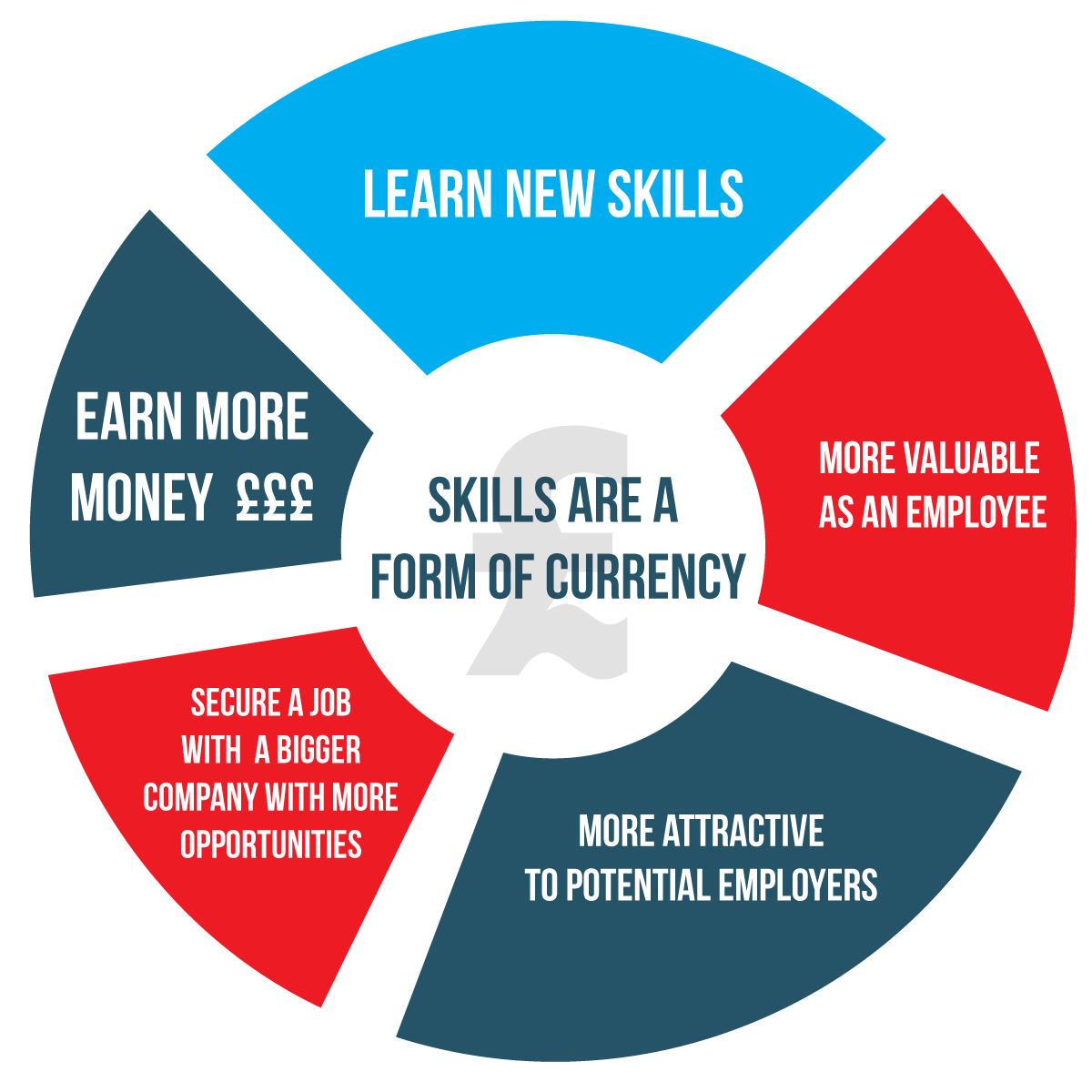
Select a skill below that you would like to learn to find out how!
CPR & First Aid
CPR and First Aid are indispensable life skills to have. It is compulsory for employers to have first-aid arrangements in place within the work environment. Therefore, if you already have a First Aid at Work qualification on your CV, you can be sure that you'll be topping that list of interviewees!
For sure, being certified will make you more appealing as an employee. You may be surprised, because it will open the door to more opportunities, particularly ones outside of professions that are traditionally associated with it, like your medical and healthcare practitioners.
Learning and becoming a qualified CPR and First Aider is easier than ever too. You can attend a course with St Johns Ambulance, who offer both First Aid and Safety Training courses all over the UK, with your local centre likely to be only a stone’s throw away!
You can register your interest online and book your place at your local centre in a matter of minutes. Courses with St Johns Ambulance cost, but it is definitely worth investing in, because you could help save a life...
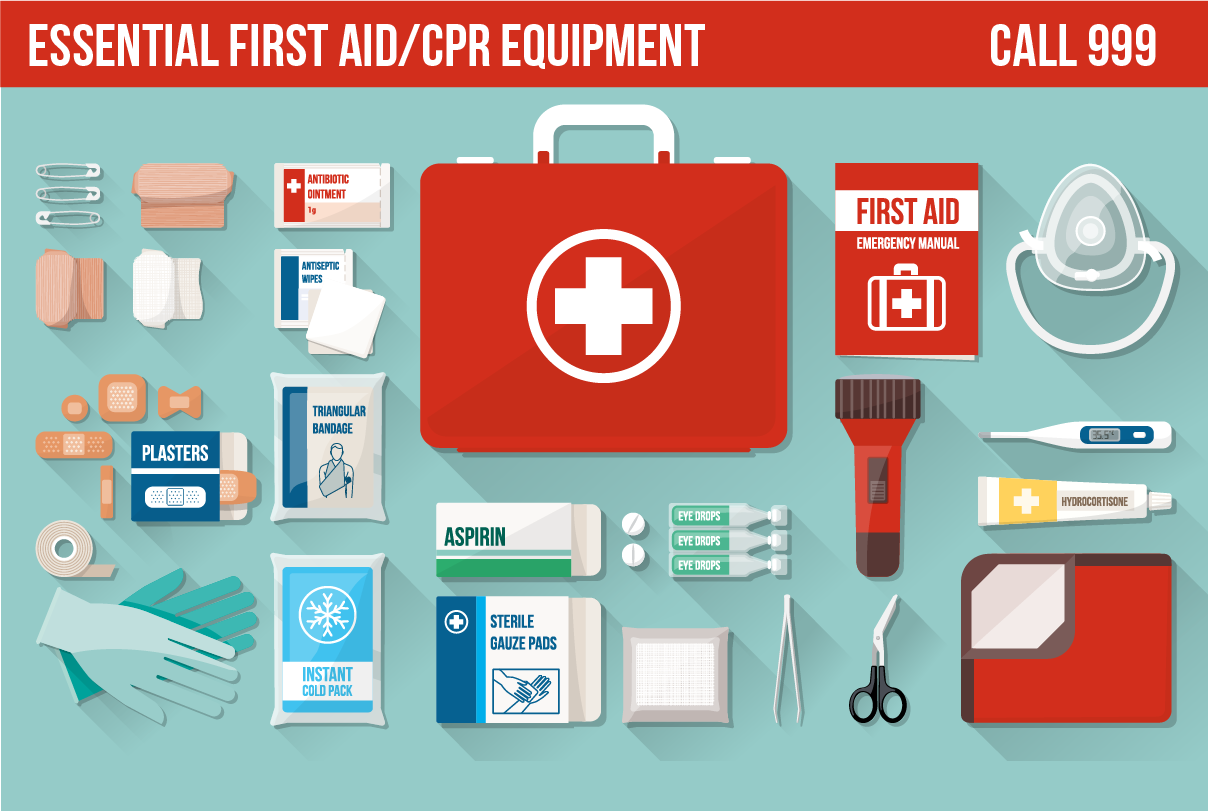
Critical Thinking Skills
Essentially, critical thinking is our own unique ability to be able to assess certain situations to engage in reflective and independent thinking, both clearly and rationally to arrive at the appropriate solution(s) to your problem.
So ask yourself; what are you aiming to achieve?
Those who are able to think in a critical manner, both positively and successfully, will be able to identify, analyse and problem solve through a more systematic approach, rather than by natural instinct.
Here are some skills that are required in order for us to be able to think critically about things that have been said or occurred in any aspect of life, and arrive at the best possible conclusion.
- Observe
- Interpret
- Analyse
- Evaluate
- Explain
- Problem solve / Decision make
- Reflect
Try this basic exercise below. It is an example of how you can start to think critically about something that has been said.
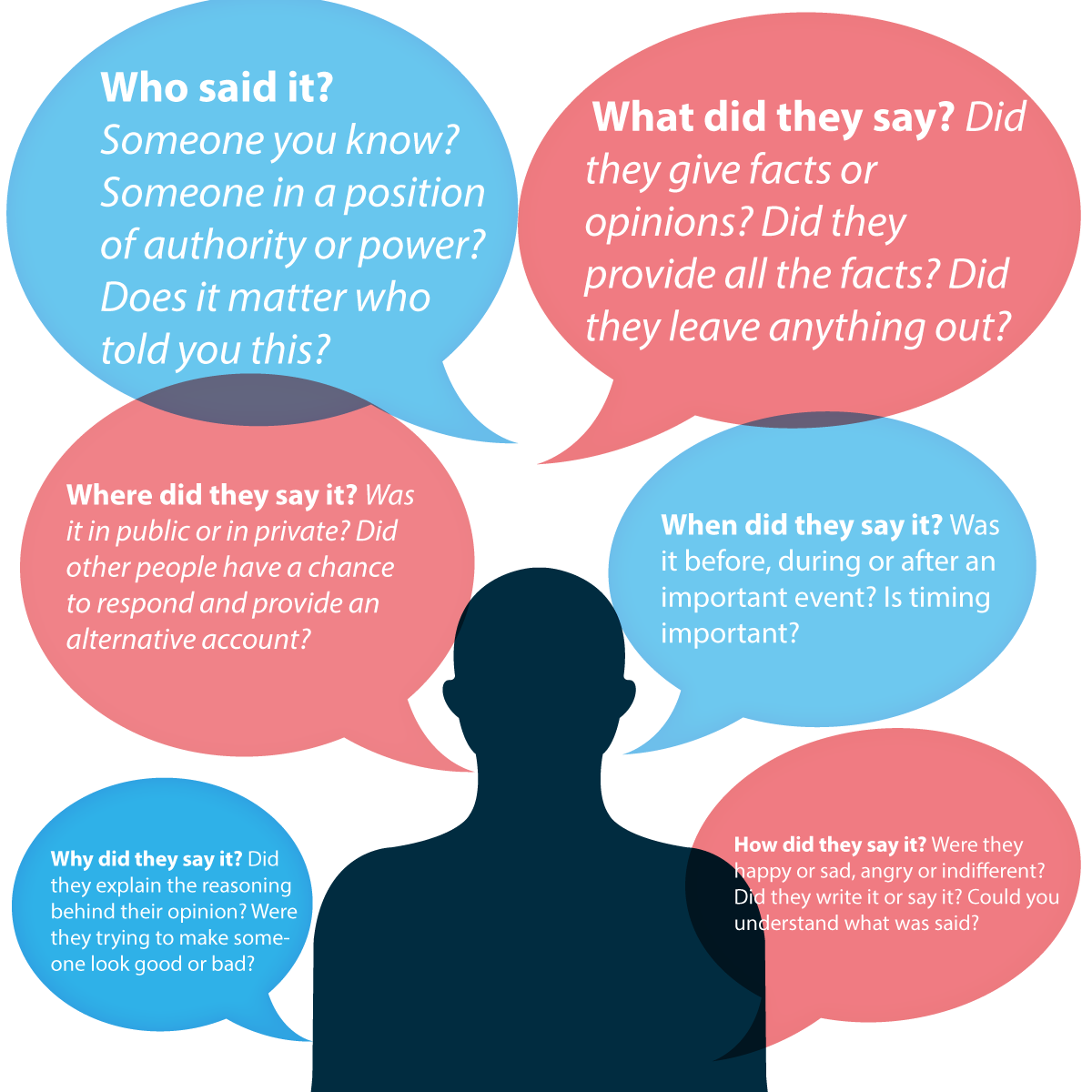
Cultural Awareness Skills
To possess an awareness of cultural differences, particularly when working in larger companies, corporations and organisations is essential, and a huge advantage to have.
Culture is defined as a set of traditions, beliefs, values and practices, whether that be with regards to age, religion, gender or ethnicity. These, alongside disabilities, education and personal characteristics need to be considered, as they contribute to workplace diversity.
Asides from the workplace, these differences should be considered if you have clients/colleagues internationally too.
Being culturally aware becomes paramount when interacting and communicating with people from different cultures. People may see and interpret things in a different way to what you mean, because, what might be appropriate behaviour in one culture, may not be in another.
Here are four ways in which you can manage cultural diversity within the workplace:
- Communicate effectively and provide information accurately.
- Use team building techniques to form a closer, tight-knit work place. Trust, respect and loyalty can be earned.
- Understand time. For example, different cultures may balance work and personal life oppositely, differing how they view and spend their time. Consider this when setting deadlines or offering overtime.
- Use a cultural calendar. There are many different dates and holidays throughout the year which may mean something different to each culture/religion. Therefore, a calendar will be a helpful resource to have to help determine deadlines and set meetings.
Driving
You may laugh and it may seem a little strange us listing driving as a skill, but that’s essentially what it is, and you’ll be surprised by the amount of individuals who decide not to learn to drive, or have unfortunately failed doing so.
Not possessing a driving license can consequently reduce career opportunities, as travelling independently becomes near impossible.
For example, you may have just discovered the perfect job that you wish to apply for, however, it’s located some 30 miles away with no train station nearby. With no option of transport, you are unable to apply.
Therefore, by having a licence and owning a car there are no boundaries. You are unrestricted when it comes to applying jobs which are a distance from your home, increasing the number of positions/roles you are able to apply for.
Be sure to tick this one off your list!
Foreign Language
We acknowledge that becoming fluent in a new language isn’t the easiest of skills to learn, but having said that, being bilingual will definitely give you a competitive edge in the job market, (as well as the bragging rights whilst on holiday abroad!).
Sometimes, the underlying reason to why so many British individuals do not make the decision to learn a new language is because English is universally spoken and the primary language choice for communication worldwide.
However, being fluent in a second language can open up a wealth of new job opportunities across a variety of different fields, with translating, interpreting and teaching being the most common. It is perfect skill to have on your CV if you want to try something completely new!
In addition, you can also use this skill as progression and development within your current career. For example, do you have international clientele? If so you can showcase your bilingual skills and head-up important meetings, provide translation and become an important asset within the company.
If you now feel like learning a new language, there are plenty of learning resources available on the net, as well as books, DVDs and CDs readily available.
Rosetta Stone is just one of a number of renowned and comprehensive learning programmes that you can subscribe to. They specialise profusely in teaching individual learners, businesses, schools and universities in more than 20 languages. Check them out!
Interpersonal Skills
You may not realise it, but you already possess interpersonal (social) skills. These are used daily to communicate and interact with others, whether it be individually or in a group by the way in which you speak or express yourself through body language.
Those with strong interpersonal skills are often able to create a more successful career for themselves, as employers increasingly seek individuals who can effectively and confidently communicate with colleagues, clients and customers.
The following is a list of interpersonal skills and what they are. These are what we need to hone in order to become successful in all aspects of life.
- Verbal Communication – How we speak and the manner in which we say it.
- Non-Verbal Communication – How we express our body language.
- Listening Skills – The way in which we interpret verbal (and non-verbal) messages from others.
- Problem Solving – How we identify, define and resolve problems with others.
- Decision Making – How we explore and analyse possibilities to make resourceful decisions with others.
- Assertiveness – How we convey our beliefs, values, opinions and desires freely.
- Negotiation – How we work with others to find a mutually agreeable outcome.
Here are four ways (and things to consider) that will help us develop our social skills.
- Empathise with others and recognise signals – Understand their points of view and try to see things from their perspective to gain trust and respect. Pick up on certain signals like stress, adapt to the situation and consider their feelings.
- Learn to listen – Take the time to listen and carefully acknowledge what others are saying through both their verbal and non-verbal communications.
- Remain relaxed and be positive – Stay calm and keep eye contact when talking. Don’t speak hastily and be confident in the message that you are saying.
- Clarify and choose your words carefully – Show an interest in the conversation, ask questions and seek clarification on certain points. Be precise and to the point when talking. Be aware of the words you are expressing.

Management Skills
For many, management skills come naturally, but for others, being given the task of overseeing and managing employees can be quite a struggle, particularly if you have none or relatively little experience.
It is worth stating that not all managers are born with a natural management talent. It is a skill that can be learned or improved, for your benefit and that of your employees.
Here are three ways you can develop management skills:
- Opt for the personal approach – Remember, employees are people with feelings, who have their own unique personalities and preferences. Adapt to each individual, get to know them on a personal level and respect them.
- Be there for your employees – Offer guidance, support and direction, to allow them to confidently and openly communicate with you, regardless to whether they’ve got a question or complaint.
- Offer constructive criticism – Learn to criticise without being overly critical, but praise them too on the work that they have achieved. Provide pointers and advice so they can positively learn from their mistakes.
Almost everyone can take it upon themselves to learn to become a better manager. Remember, a happy work environment generates better results!
Microsoft Office & Sage
It’s a fact that basic computer literacy is a must-have, and you’ll be surprised by how not having a good understanding and previous experience of working with Microsoft Office programmes can hinder your chances of new employment or promotions. It is a desirable assest to have, and one that is pre-requisite in office based roles.
It has become the most widely used software programme in the world, with the vast majority of businesses and organisations using it.
If, when applying for a new job (or promotion), you are able to list each application in which you are proficient at, with examples of accomplishments, your résumé will look far more attractive and impressive to that of your (future or current) employer.
If your Microsoft computer literacy is something that you would like to improve, you can undergo additional office training online, for free (who said there's no such thing as a free lunch?), thanks to the range of tutorials they have made available on the official Microsoft website.
This is a great way of increasing your knowledge and skills, whilst gaining an advantage in the interview room!
Sage on the other-hand isn’t necessarily a software programme that you would have installed on your home computer.
But it is in-fact another skill that we recommend to learn and become acquainted with, as it is used within companies of all sizes to manage accounting, finance and payment services, provide HR and business management solutions.
You can learn online with Sage and receive official certification to prove that you are accredited and have the expertise to work with and use the Sage software. Training prices start from £63 + VAT, which is a small/reasonable price to pay, because afterall, you can’t put a price on a new skill learned!
Planning, Budgeting & Forecasting
Okay we admit, these are not the most intriguing of skills, but if you ask any entrepreneurial expert, business owner or manager, knowing how to plan, budget and forecast (PBF) is an important financial process that takes place in every organisation.
Essentially it involves creating a plan which includes spending money, balancing all expenses with income.
Predicting sales, cost of sales, revenue and expenses and comparing them to actual is an essential part of running a company in any industry, but you don’t need to be a mathematical genius to gain a basic understanding of this financial skill.
Planning usually involves laying out an annual three-five year strategic vision, where the senior executives of the company create a proposal of what they believe is possible, both short-term and long-term.
Budgeting is slightly more detailed and operational, as they outline what is/should be expected from the business, based upon the plan, specifying expenditures.
Forecasting then uses actual accumulated historic performance data to project further company performance and financial outcomes for the remainder of the stated period.
That’s PBF in a nutshell.
And while there are no courses available on planning, budgeting and forecasting, there are in-fact many accessible articles on the internet, which are full of detailed information and advice to enable you to become more understanding of this financial process.
Productivity & Organisational Skills
A little bit out of the box this one, but if you are consistently organised at work, it’s inevitable that productivity levels will rise.
If you are able to effectively schedule, prioritise and manage yourself, it will put you in good stead for future supervisorial and/or managerial positions, as you’ll be able to successfully control a team of individuals to accomplish set targets, regardless of circumstances and resources.
Being organised requires a lot of commitment, enthusiasm and smart-thinking, but it is an exceptional leadership quality to have. Developing clear timetables and schedules, set with milestones and deadlines can help and increase productivity, while starting early and preparing in advance can improve organisation.
Public Speaking & Presentational Skills
You’ll be surprised by the amount of individuals who become incredibly nervous at the thought of public speaking, including me! Possessing the natural talent for speaking publicly is quite rare, but with practice, it is something that can usually be improved overtime.
Although I feel more confident when delivering a speech in front of a crowd, I am still far from being the most eloquent of speakers. One of the biggest ways to improve I have discovered, is by realising a personal speaking and presentational style, as it allows you to showcase your personality.
By conquering your fear of public speaking, you can make new contacts, excel in job interviews and expand your client base. There are so many aspects in work and life, where being confident in public speaking will come in handy and serve you well in situations.
If public speaking is something that you would like to improve, there is a non-profit public speaking training charity available in Speakers Trust. They specialise in and aim to help adults and young people gain the skills, confidence and desire to speak in public through their courses and workshop programmes.
Asides from attending a public speaking workshop, such as Speakers Trust, there are also a number of additional ways in which you can steadily improve your public speaking and presentational skills, as displayed in our cool infographic!
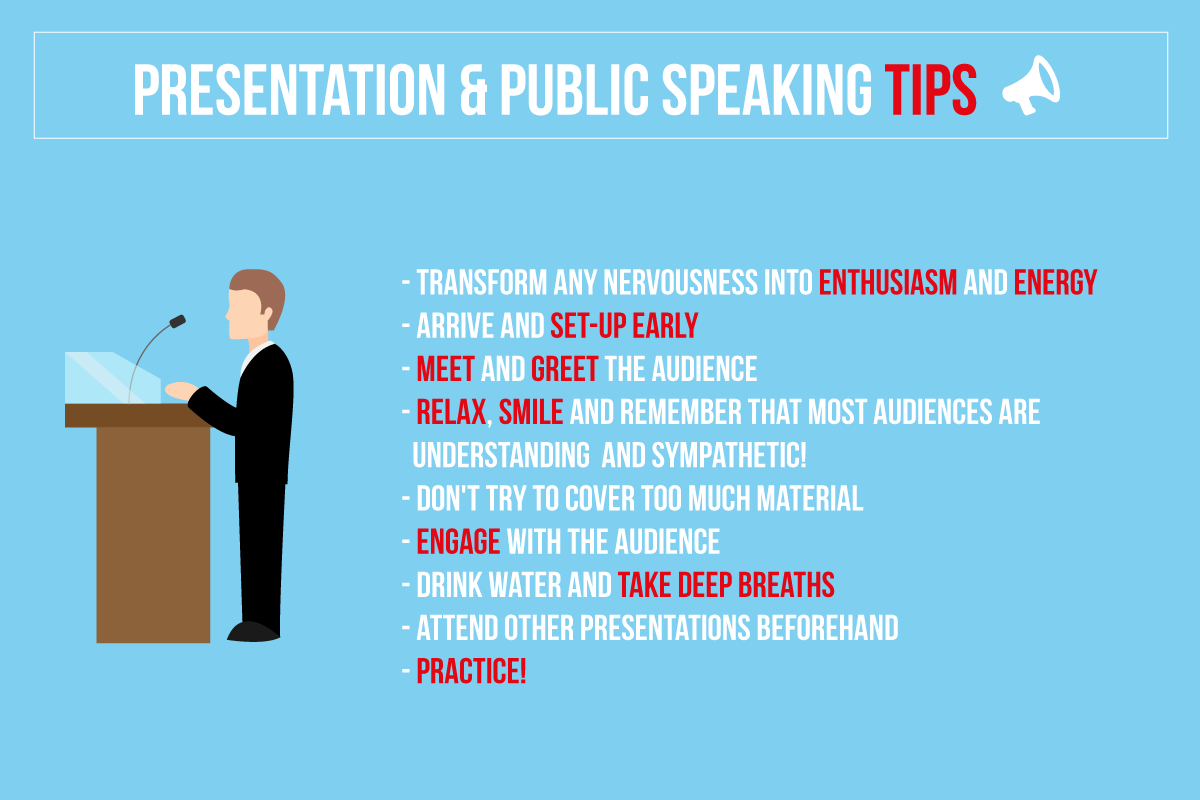
Research & Analysis Skills
The probability of being asked your level and experience of research and analytic skills on a job application is usually quite high. It’s one of those questions which can say a lot about an individual, yet it can sometimes be quite complicated to answer.
Identifying these skills and previous experience of using them in a work environment can be a little difficult, particularly if you are unfamiliar with their definitions.
But, in a nutshell, research and analytical skills are an ability to be able to assess a situation so you can identify key issues, gather further information and find multiple perspectives if required.
If you can showcase this type of positive thinking and problem solving to devise solutions in a work environment, this will certainly help to catch the attention of future employers.
Improving research and analytical skills can be done by, for example, solving a mathematic problem. Using your brain in a different way on something you’re not used to is a good way of being able to think analytically about situations.
Shorthand Writing Skills
Not something you would necessarily think of adding to your CV, but you’ll be surprised by how knowing shorthand writing can help you to stand-out.
If you are unsure of what shorthand is, it is a quicker and more efficient way of writing by using different symbols, as opposed to our normal method writing a language.
It was once a very common and desired skill to have, as it is useful when recording dictation and taking/making notes, but recently, it has become something of a dying-art. However, there are plenty of resources still available online that allow you to learn for free.
Teeline Shorthand is one of a number of alternative shorthand styles available to learn, with many journalists choosing it as their preferred choice. By visiting TeelineShorthand.org, you can learn and practice dictations from the many tutorials, exercises and worksheets, while receiving all the advice, support and feedback you need to succeed!
Sign Language
Being proficient in sign language is often something that is overlooked, because there’s a presumption that if you’re not hard-of-hearing or deaf, BSL (British Sign Language) isn’t worth knowing.
However, this can be a valuable skill to have on your résumé, because there are approximately one million individuals in Britain with a hearing disability, and an increasing amount of job opportunities arising in organisations and businesses for BSL interpreters.
Although recognised qualifications in BSL are required in order to become a full-time interpreter, you are able to learn for free.
There are many tutorials and videos available online, which provide a fun, entertaining way to become understanding of British Sign Language, so, if you have the passion and time, it’s definitely worth having a go! You never know, this could be your hidden talent!
Try to learn the alphabet in BSL. You’ll be surprised by how many you’ll remember!
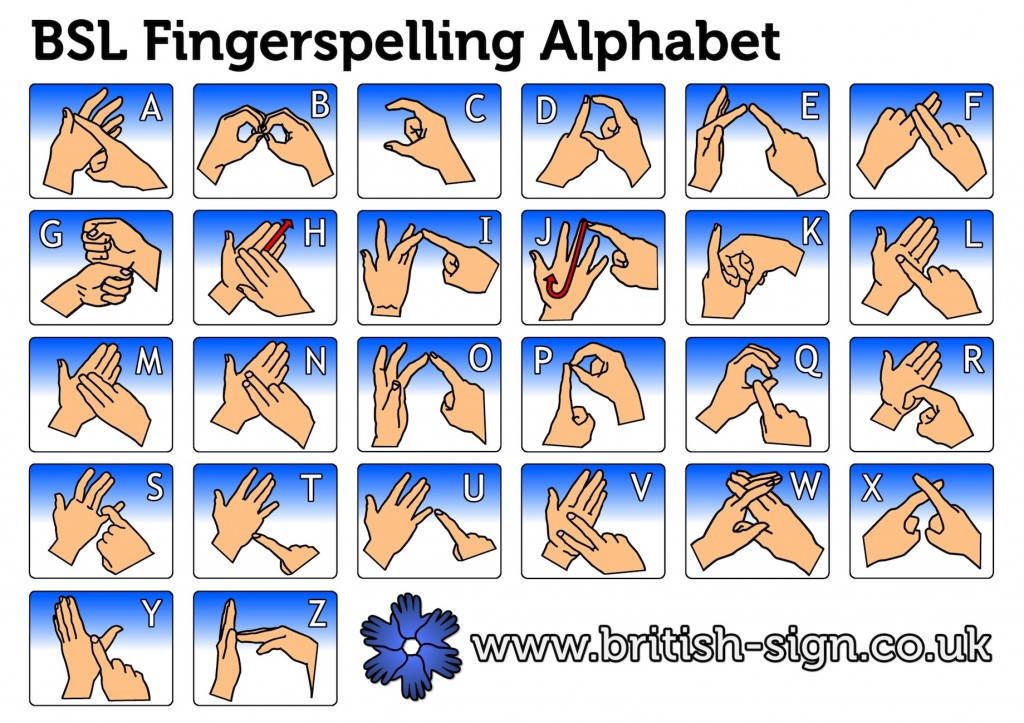
Social Media Skills
Social media is gargantuan! Not only are millions individuals all over the world signed-up with profiles on the likes of Facebook, Twitter, Instagram and LinkedIn, but small, medium and large business/organisations are too.
In this digital age, it is as important as ever to have an online presence, particularly on social media platforms, as they can be used in a variety of ways to help expand the growth of the corporation, reach out to new clients and customers.
And now more than ever, there is an increased amount of job and career opportunities within the social media and digital marketing sector.
Previously, if you had experience of social media and could demonstrate knowledge and awareness in proposing ideas that will increase engagement metrics, such as number of followers, likes, retweets and comments, the probability of securing a job was pretty high.
However, as jobs in social media and digital marketing have become increasingly competitive, qualifications are becoming more desirable. But, what we would say is that if you are looking to break into this line of work, smaller businesses are more likely to offer you an opportunity in the industry, allowing you to learn, develop and gain that essential experience.
You can read through various articles and watch tutorials on social media marketing to help you to learn the fundamentals. Udemy.com, Lynda.com and Alison.com are just a couple of places where you can start learning the basics.
Here is an infographic on the benefits for a company who have a social media presence.
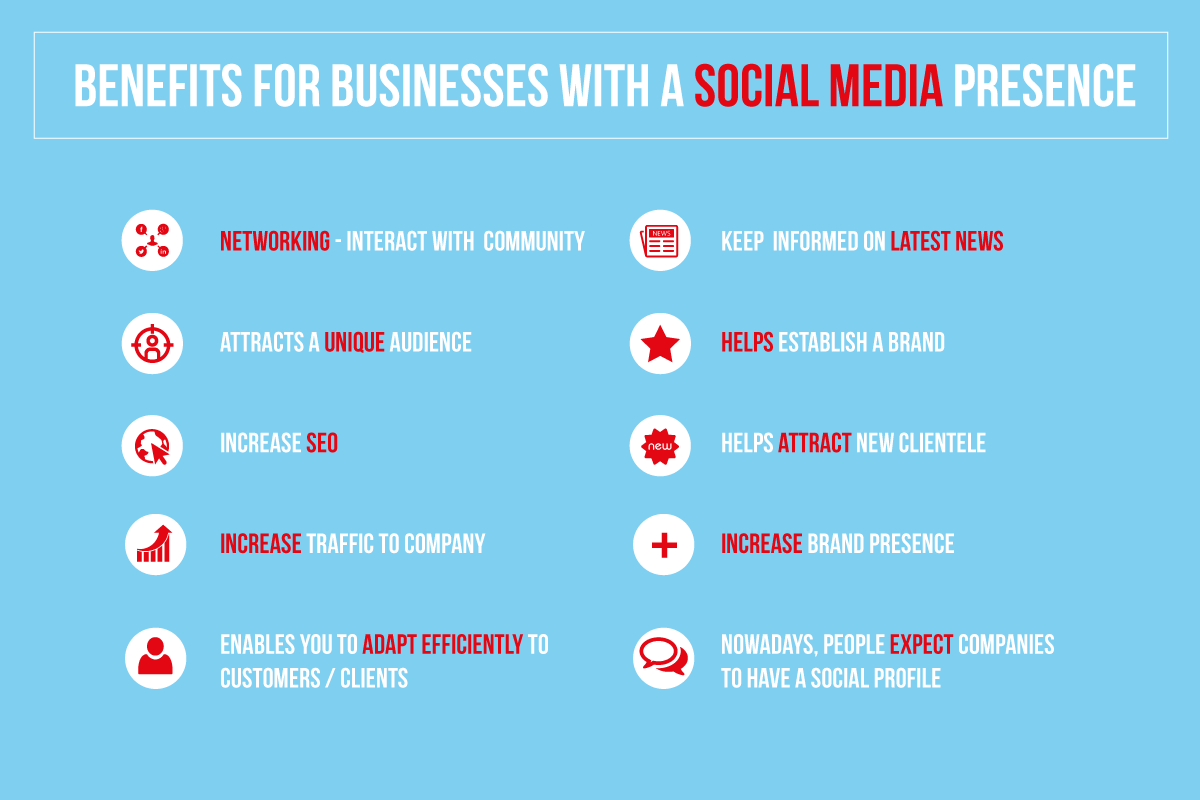
Know Team Building
Every once in a while, embarking on a company-wide team building event is recommended.
Now we aren’t necessarily saying that you need to be some sort of qualified event planner, but, if you are able to organise an awesome, adrenaline-fuelled activity that’d certainly be one way of becoming top dog at the company!
If you can come up with ideas to how you and your colleagues (or employees) can become more productive, cohesive and motivated within the workplace, it’s a good thing to have!
It could be anything from dress-down Friday’s to a daily happy hour or an altering end-of-the-month event. Basically, any idea that boosts morale and helps integrate new employees in to the business is a good idea!
Web Development & Design Skills
Ever wondered how the websites you visit and articles you read have been made?
I did, and since joining Voucher Codes Pro as a Content Editor & Social Marketer, I have dedicated some of my spare time to learn the basics of HTML and CSS.
I am now at a standard where I feel confident in my skills to create a good-looking webpage. Yes! I designed this one you’re reading now! Other articles include my Fitness & Nutrition Guide and Guide to Backpacking – please feel free to take a look!
I have discovered first-hand some truly amazing learning resources out there, which enable you to learn both sides of computer programming and design (Photoshop and Illustrator), and let me say, it is definitely worth doing. There’s nothing more satisfying than seeing something you have created on the worldwide web for all to see!
By learning such cool web development and design skills, you will not only be able to offer more to your company (like I have been fortunate enough to do), but you could also come up with a kick-ass, ingenious idea to start up your very own company!
Just imagine, in a short space of time you could be your very own boss! That’s what learning development and design could do for you.
Here are some excellent learning resources available. Some are free, while others charge a monthly subscription fee. Treehouse, Code Academy, Pluralsight and Code School are all fantastic.
Creating a Good Résumé
Now it’s time to display the skills you possess in a mind-blowing résumé. This is where you will be able to grab the attention of employers everywhere, to try and make you the stand-out candidate for the job in question.
Being able to highlight your skills, showcase your achievements and list all relevant experience that you have in a way that doesn’t sound monotonous is key. Remember, résumés are effectively a self-advertisement, so add personality to your writing, but underline why you are the one for the job.
The principal goal of a résumé is to win you an interview, so use this opportunity to convince the prospective employer that you have what it takes to be successful in the position and within their company.
Here are seven things to consider when writing your résumé.
- Use consistent branding – On your résumé, cover letter and social profiles, use the same name throughout for consistency. For example, decide if you want to be recognised as Joe Griffiths, Joseph Griffiths or, Joseph J. Griffiths.
- Link to your professional profiles – Do you have your own website/portfolio or LinkedIn profile? You’ll be surprised by the amount of employers who review potential candidates online, so include these.
- Use simplistic design – Don’t go crazy on colours and fonts.
- Avoid dense text – Opt for shorter sentences and bullet points if possible. Format the information in a way that is easy to read, understand and enables the reader to scan through and recognise your skills and qualifications.
- Include a personal summary – Rather than explain who you are and your career objective, in three to five sentences, explain what your excellent at, what you are interested in and how you can provide value to the employer.
- Provide previous company descriptions and quantify your job accomplishments/contributions for the role – Keep it short and to the point. Highlight any big achievements, for example, projects delivered on time/under budget.
- Include key words, common phrases and terminology – Include key words that are associated to the job role and featured in the advertisement.

There you have it. Our 18 Skills To Help You Earn More Money In Your Job. What do you think? Do you think we've missed one out that should be in there? If so, let us know via Twitter at Voucher Codes Pro!
Thanks for reading and have a great day!
